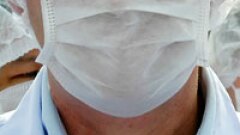As more states examine some kind of reopening — and others dream of it — everyone agrees that taking a proactive approach to staff and client health is a paramount concern.
With that in mind, the Maryland Association of CPAs has put together a compendium of best practices, guidance and more from federal, state and local sources called “
“Reopening our businesses in this environment goes way beyond unlocking the door and turning on the lights. It’s a complex process that involves considerations in a number of areas, including health care, human resources, business strategy, and risk management,” said MACPA president and CEO Tom Hood, in a statement. “A number of agencies have released terrific guidance on how to protect our teams and organizations as we return to work. This document is an authoritative collection of what we believe is the best advice available.”
At the core of the free document are seven key practices, listed below.






